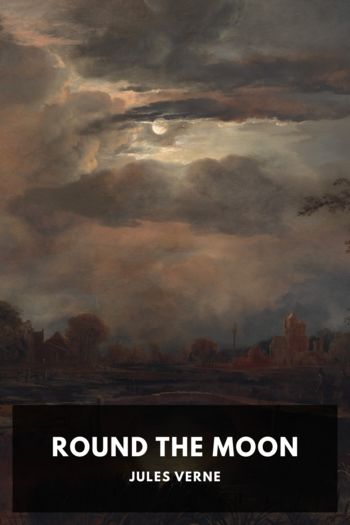Topsy-Turvy by Jules Verne (best book recommendations .txt) 📕

- Author: Jules Verne
Book online «Topsy-Turvy by Jules Verne (best book recommendations .txt) 📕». Author Jules Verne
But do not think that Mr. J. T. Maston’s mathematical intelligence was confined to elementary algebra! No; no matter what figuring he had to do, it was alike familiar to him, and with a practised hand he made all the signs and figures, and even did not hesitate at ∱ which looks very simple, but behind which lays a great deal of calculation. The same with the sign ε, which represents the sum of a finished number. Also the sign ∞, by which the mathematicians designate the incomplete, and all those mysterious symbols which are used in this language and which are unknown to the common people. This astonishing man was able to do anything even in the very highest grades of mathematics. Such was Mr. J. T. Maston. And therefore it was that his associates had such perfect confidence in him when he set out to figure the most difficult problems in his audacious brain. This it was which led the Gun Club to trust him with the difficult problem of sending a projectile to the moon. And this was why Mrs. Evangelina Scorbitt, jealous of his fame, felt for him an admiration which ended in love. In this present case—that is, how to solve the conquering of the North Pole, J. T. Maston had but to begin to think and dream himself into the Arctic regions. To reach the solution the secretary had but to undertake certain mathematical problems, very complicated, perhaps, but over which in all cases he would come out ahead.
It was safe to trust Mr. J. T. Maston, even where the smallest and simplest mistake would have meant a loss of millions. Never, since the time his youthful brain began to think of mathematics had he committed a mistake—not even one of a thousandth of an inch—if his calculations were made up on the length of an object. If he had made a mistake of only the smallest amount he would have torn his gutta-percha cap from his head. Now let us see him while engaged in his calculations, and for this purpose we must go back a few weeks.
It was about a month before the publication of the circular addressed to the inhabitants of the Old and New Worlds that Mr. Maston had undertaken to figure out the elements of a scheme in which he had promised his associates the greatest success. For a number of years Mr. Maston had lived at No. 179 Franklin Street, one of the most quiet streets of Baltimore, far away from the centre of business, for which he did not care anything, far away from the noise of the great crowd, which disgusted him. There he occupied a modest little house known by the name of “Ballistic Cottage,” having for his income only his pension allowed to him as a retired officer of artillery and the salary which he received as Secretary of the Gun Club. He lived alone, served by his Negro “Fire-Fire.” This Negro was not an ordinary servant; he was rather an appreciative friend and treated his master as if he were his own brother. Mr. Maston was a decided bachelor, having an idea that being a bachelor was the only sensible way of living in the present world. He knew the proverb, “a woman can draw more with one hair than four oxen at the plough,” and he disproved it. If he occupied his cottage alone it was only because he wished to do so. We know that he only had to make the motion to change his solitude of one to a company of two and his small income to the income of a millionaire. He did not doubt it. Mrs. Evangelina Scorbitt would have been only too happy to … But up to this time Mr. Maston had not been happy to … and it seemed certain that these two beings, so well made one for the other, at least this was the opinion of the tender widow, would never reach the transformation period. The cottage was a very simple one. A ground-floor, with a veranda and a floor over it; a small parlor and small dining-room, with a kitchen and another room in an outbuilding stand at the back of the garden. Upstairs his sleeping-room and his working-studio, looking on the garden, and where the noise of the outer world could never penetrate. Within these walls there had





Comments (0)